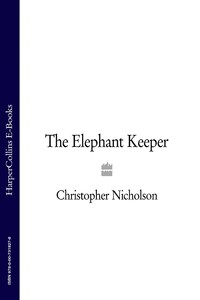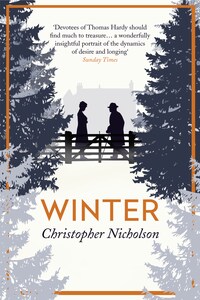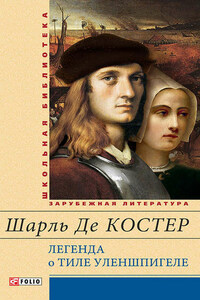
APRIL 24TH. It was six days ago that Lord Bidborough, accompanied by another gentleman, came to the Elephant House and, after making the usual inquiries about my charge, who was, at that moment, quietly eating hay, asked whether it was true that, as he had heard, I was able to read. I replied that my parents had put in my way various books, which I had sat over, piecing together the letters until they began to make sense; whereupon his Lordship asked me which books, and I mentioned the Bible, ‘Pilgrim’s Progress’, and ‘Gulliver’s Travels’. This last work, I said, had so fascinated and enthralled me that I had formed the ambition of taking ship and travelling to remote parts of the globe in search of wealth and adventure, an ambition from which my father had dissuaded me, pointing out the dangers that lay in such travel, and recommending me to content myself with my lot. Lord Bidborough listened carefully. ‘Your father would appear to have been wise,’ he said, smiling. ‘Many lives have been squandered in the pursuit of adventure. Your parents could read and write, too?’—‘They could read, my Lord, but scarcely write a word.’—‘But did you learn to write?’ I replied that I had been taught to write at the village school, and had mastered the art tolerably well, although I had not written for a long time.
At this the other gentleman, whose name was Dr. Goldsmith, said: ‘Lord Bidborough reliably informs me that you are able to speak Elephant.’ I explained, cautiously, that I could communicate with the Elephant by making certain signs and sounds, and that I could also interpret certain signs and sounds made by the Elephant; but none of this was any more than a man might do with his most favoured hounds. Just as a hound would obey if told to beg, or sit, or leave the room, so, in the same fashion I could command the Elephant to kneel down, to sit, to coil up her trunk and to perform other tasks. Dr. Goldsmith here gave a glance to Lord Bidborough, who said, ‘Tom, Dr. Goldsmith would be most interested to see a demonstration of this communication at work.’ I readily complied, leading the Elephant out of her stable into the yard, where I bid her shake hands with Dr. Goldsmith; that is, to shake his hand with her trunk, which she proceeded to do, to his astonishment. At a word she knelt, very slowly and carefully, as is the way with Elephants, whereupon I made a sign with my hands and she rolled gently on to her side.
Lord Bidborough asked, if this was indeed not a form of language. Dr. Goldsmith answered, that it was certainly remarkable: ‘But,’ he went on, ‘is not the Elephant known as the half-reasoning Animal?’ They discussed this for some minutes while the Elephant lay on the floor of the yard, her long-fringed eyes watching me for the signal to rise. From the slight twitches of her trunk I could tell that her patience was being tested, but she remained still and docile.
Presently the two gentlemen walked round her body and inspected her, poking her with their sticks and making further inquiries of her diet and her age. Dr. Goldsmith, who had pulled out a pocket-book and lead pencil, took notes on my answers. He was intrigued, as both ladies and gentlemen always are, with her trunk, which he called her probbossis. Having crouched to touch it, which he did with a certain caution, he asked me to explain its use and purpose. I replied that it had a double purpose: not only was it a breathing tube, like a human nose, in which respect it was highly sensitive, but also that it served as an arm and a hand, in which respect it was both prodigiously strong, capable of tearing branches off trees and hurling rocks, and highly dextrous, enabling the Elephant to untie knotted ropes or to pick up objects as small as a piece of straw, or a pin, at will. I asked Dr. Goldsmith to put his pencil on the floor; next, having drawn the Elephant to her feet, bid her pick it up and return it to him, which she did very courteously, and with a certain gleam of amusement in her eyes. Lord Bidborough gravely remarked that ‘the male of the human species also possesses an organ with a double purpose.’
In order to demonstrate the Elephant’s strength, I offered to command her to lift Dr. Goldsmith into the air, as she has often done in the past with his Lordship’s acquaintances. Though obviously tempted, Dr. Goldsmith was concerned as to the possible dangers, and asked whether I could assure him that he would be perfectly safe. Was it possible that the beast would hurl him to the ground, or tighten her probbossis like a snake so that he would be unable to breathe? I said that I had no qualms whatever on the matter, and that I would stake my life on his safety; however, if he preferred, I would demonstrate by ordering the Elephant to lift me in his stead. Dr. Goldsmith was on the point of accepting my offer, when Lord Bidborough, with an arch smile, asked him if he was afraid. He seemed somewhat stung by this sally.









